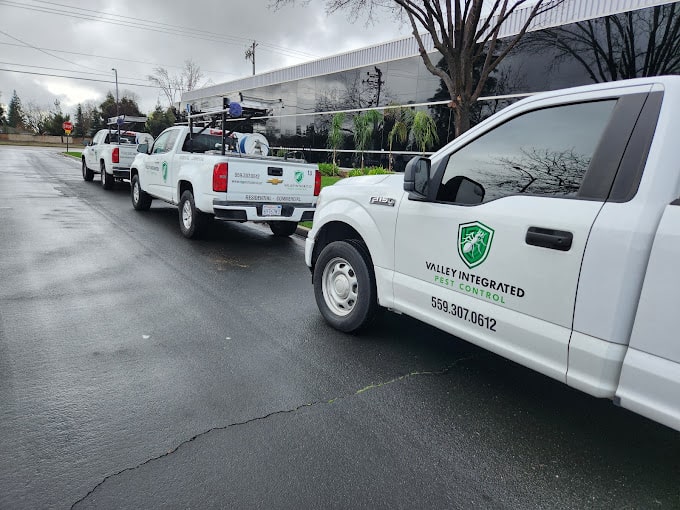Despite their small size, rodents can cause a lot of issues, particularly with regard to health. These bugs can cause a number of possible health hazards when they infiltrate dwellings. Rats may cause allergies and spread disease, so they’re more than just a bother. By being aware of these dangers, you can take the appropriate precautions to keep your family and your house safe. We’ll discuss the different health risks that rodents provide in this blog post, along with tips for protecting your family.

Diseases Spread by Rodents
Many diseases, some serious or even fatal, are known to be carried by rodents. Let’s examine a few of the most prevalent illnesses that these pests can transmit to people.
Hantavirus
Hantavirus is a serious disease that can lead to respiratory issues. It is primarily spread through contact with rodent urine, droppings, or nesting materials. People can inhale the virus when these materials become airborne, especially during cleaning activities. Symptoms often begin with fatigue, fever, and muscle aches, which can escalate into coughing and breathing difficulties.
Salmonella
Rodents can also spread Salmonella, a type of bacteria that causes food poisoning. When rodents contaminate food or surfaces in your kitchen, they can transfer this bacteria, leading to symptoms like fever, diarrhea, and abdominal pain. Young children, the elderly, and those with weakened immune systems are particularly at risk of severe symptoms.
Leptospirosis
Leptospirosis is another disease carried by rodents, which can cause a range of symptoms from mild headaches to severe conditions like liver damage or kidney failure. It is typically spread through water contaminated with rodent urine. The disease can be contracted through direct contact with contaminated water or by eating contaminated food.
Allergies and Asthma
Related: Can pests trigger allergies and asthma?
Rodents can also trigger allergic reactions and asthma attacks. Their fur, droppings, and saliva can become airborne, worsening symptoms for sensitive individuals.
Allergic Reactions
Some people are allergic to proteins found in rodent dander, urine, and droppings. These allergens can cause sneezing, itchy eyes, and skin rashes, making life uncomfortable, especially for those with existing allergies. Reducing rodent presence can significantly decrease these allergic reactions.
Asthma Attacks
Asthma sufferers can experience more frequent and severe attacks when exposed to rodent allergens. Keeping rodents out of the home can help reduce these incidents and improve overall air quality. The presence of rodents can also lead to increased levels of dust and other irritants, further aggravating asthma symptoms.
Contamination of Food and Water
Rodents are notorious for contaminating food and water supplies, leading to health issues and financial losses.
Food Contamination
Rodents can chew through packaging and leave behind droppings and urine, spoiling your food. Consuming contaminated food can lead to various health problems, including stomach upset and foodborne illnesses. It’s crucial to store food in secure containers and regularly check for signs of rodent intrusion.
Water Contamination
Rodents can also contaminate water sources, especially if they fall into open water tanks or pipes. This contamination can lead to the spread of diseases and pose serious health risks to your family. Ensuring that water storage is adequately covered will help prevent such issues.
Preventing Rodent Infestations
Preventing a rodent problem is the best way to protect your health. Here are some effective strategies to keep these pests at bay.
Seal Entry Points
Rodents can squeeze through surprisingly small gaps. Seal all potential entry points in your home, including cracks, holes, and vents, to prevent them from getting in. Regular inspection and maintenance of your home’s exterior can help detect and close these entryways.
Keep Food Sealed
Store food in airtight containers and clean up crumbs and spills promptly. This will make your home less attractive to rodents looking for an easy meal. Maintaining a clean kitchen environment is key to deterring rodent activity.
Maintain Cleanliness
Regular cleaning can help deter rodents by eliminating food sources and nesting materials. Keep your home tidy and take out the trash regularly to reduce the risk of an infestation. Pay special attention to less frequently cleaned areas, such as attics and basements.
Seek Professional Help
If you suspect a rodent problem, it is wise to contact rodent control experts. They can assess the situation and implement effective strategies to remove these pests from your home safely. Professional services can offer long-term solutions to prevent future infestations.
Essential Measures for a Rodent-Free Home
Rodents are more than just unwanted guests; they pose significant health risks through disease transmission, allergies, and contamination. By taking proactive measures like sealing entry points, maintaining cleanliness, and seeking professional rodent control services, you can protect your home and family from these health threats. Remember, staying informed and vigilant is key to keeping your living environment safe and healthy. Addressing rodent issues promptly will help ensure a healthier and more comfortable home for you and your loved ones.
Don’t let rodents threaten your home’s safety and health! Contact Valley Integrated Pest Control today for expert solutions and peace of mind. Protect your family—act now for a rodent-free environment.





